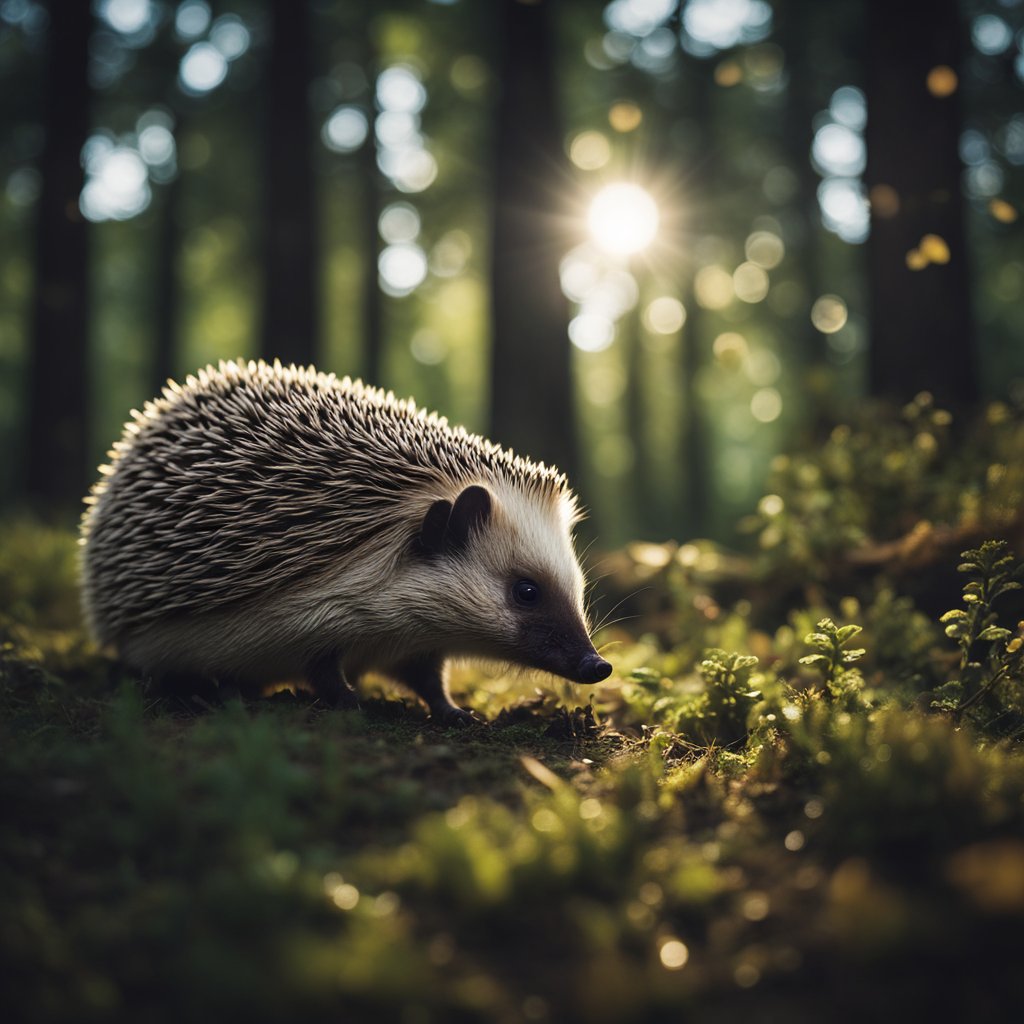Can Hedgehogs Eat Cicadas? A Comprehensive Guide
If you’re a hedgehog owner, you may be wondering if your pet can eat cicadas. The answer is yes, hedgehogs can eat cicadas, but there are some things to keep in mind before offering them as a snack. Cicadas are a good source of protein, which is an important part of a hedgehog’s diet. However, it’s important to make sure that the cicadas are fresh and free from germs.
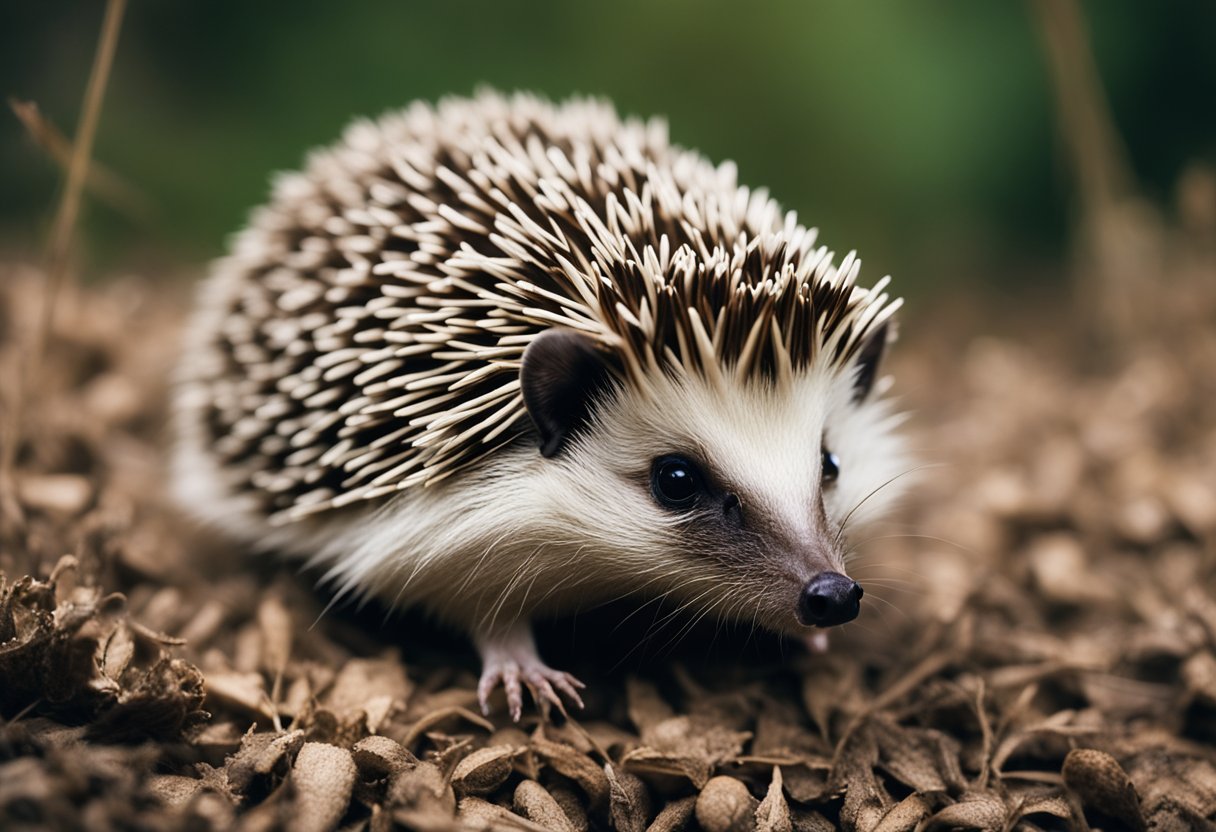
It’s also important to note that while hedgehogs can eat cicadas, they should not be a staple in their diet. Hedgehogs are omnivores and require a balanced diet that includes a variety of foods, including high-quality commercial hedgehog food, insects, and occasional fruits and vegetables. Offering cicadas as a treat once in a while is fine, but they should not make up a significant portion of your hedgehog’s diet.
Key Takeaways
- Hedgehogs can eat cicadas, but they should not be a staple in their diet.
- Cicadas are a good source of protein, but it’s important to make sure they are fresh and free from germs.
- A balanced diet that includes high-quality commercial hedgehog food, insects, and occasional fruits and vegetables is important for your hedgehog’s health.
Dietary Habits of Hedgehogs
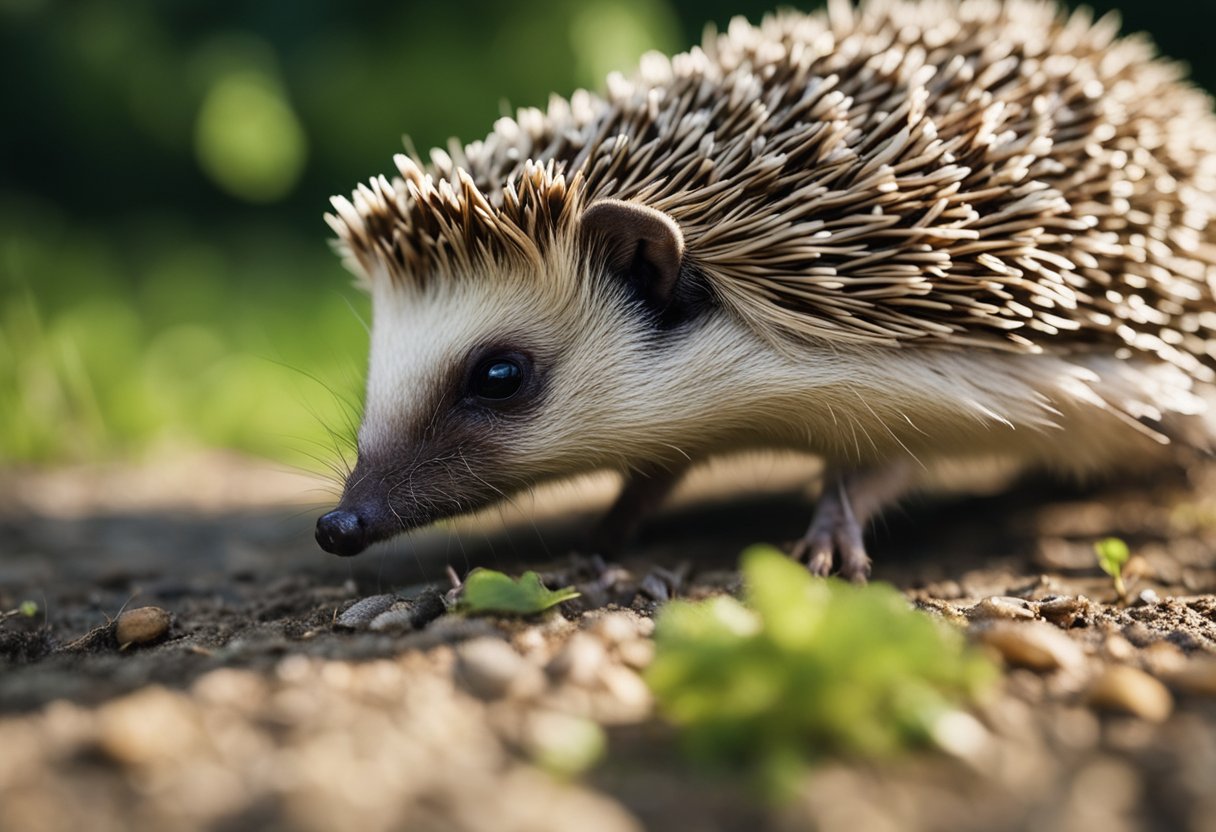
Hedgehogs are small animals that have a specific dietary requirement. They are insectivores and primarily feed on invertebrates such as slugs, worms, beetles, and earwigs. Hedgehogs are also known to eat fungi, vegetation, and eggs, and even small vertebrates like baby rodents, frogs, and baby birds if they can catch them.
Natural Food Sources
In the wild, hedgehogs are opportunistic feeders and will eat whatever is available. They are nocturnal and hunt for food at night. Hedgehogs have a keen sense of smell and will use it to locate their prey. They will also use their sharp claws and teeth to catch and kill their prey.
Nutritional Requirements
Hedgehogs require a diet that is high in protein to maintain their health and well-being. They also need a source of calcium to maintain strong bones and teeth. It is recommended to feed hedgehogs a diet that is low in fat and high in fiber.
When considering cicadas as a part of their diet, moderation is key. Offer cicadas as an occasional treat rather than a staple meal. One or two cicadas per week can be sufficient, depending on your hedgehog’s size and overall diet. However, you should not give wild cicadas to your pet hedgehogs because of safety. If you do give cicadas to your hedgehogs, make sure that they are fresh and free from germs.
In addition to insects, hedgehogs can also be fed dry cat food as a source of protein. Live insects, such as crickets, mealworms, and waxworms, can also be given as a treat. It is important to note that hedgehogs should not be fed fruits, vegetables, or dairy products as they are lactose intolerant and cannot digest them properly.
Overall, it is important to provide your hedgehog with a balanced diet that meets their nutritional requirements. Consult with a veterinarian or a hedgehog expert to determine the best diet for your pet hedgehog.
Cicadas as Food for Hedgehogs
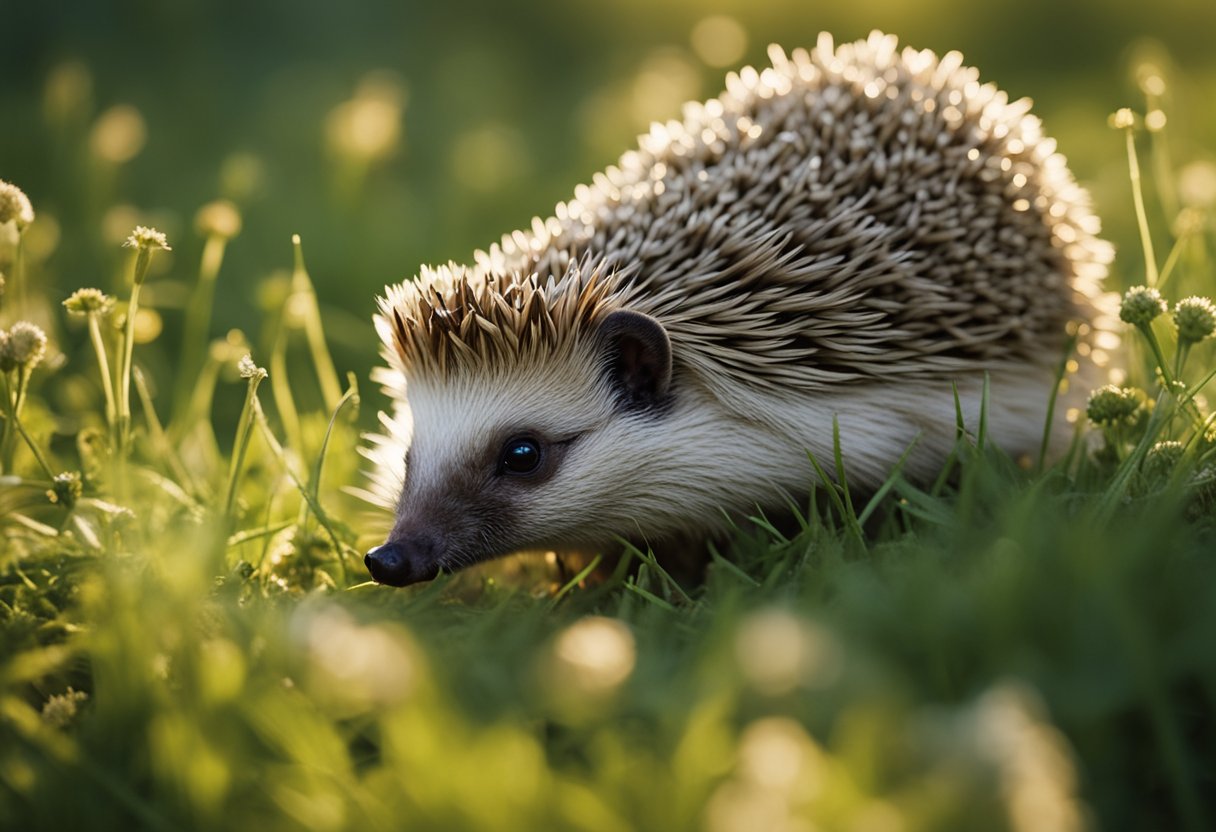
If you’re considering adding cicadas to your hedgehog’s diet, it’s important to understand the potential benefits and risks associated with this food source. Here are some important things to keep in mind:
Potential Benefits
Cicadas are a good source of protein and other nutrients that hedgehogs need to stay healthy. In fact, many hedgehogs in the wild eat cicadas as part of their regular diet. Cicadas are also relatively easy to find during the summer months, which makes them a convenient food source for pet hedgehogs.
Possible Risks
While cicadas can offer nutritional benefits to hedgehogs, there are potential risks associated with including them in their diet. One primary concern is the hard exoskeleton of cicadas. Hedgehogs may struggle to chew and digest these tough shells, leading to potential choking hazards or obstructions in their digestive system. To mitigate this risk, it’s important to only offer fresh cicadas that are free from germs and other contaminants.
Feeding Recommendations
If you decide to feed cicadas to your hedgehog, it’s important to do so in moderation. Offer cicadas as a treat rather than a staple food source, and always supervise your hedgehog while they’re eating to ensure they don’t choke or experience any other issues. You may also want to consider removing the hard exoskeleton of the cicada before offering it to your hedgehog, or grinding it up into smaller pieces to make it easier to digest.
In addition to cicadas, there are many other healthy foods you can offer your hedgehog to ensure they’re getting the nutrients they need. Some good options include high-quality hedgehog food, cooked chicken or turkey, mealworms, crickets, and fresh fruits and vegetables. Just be sure to avoid any foods that are toxic to hedgehogs, such as avocados, grapes, and dried fruits.
Resources
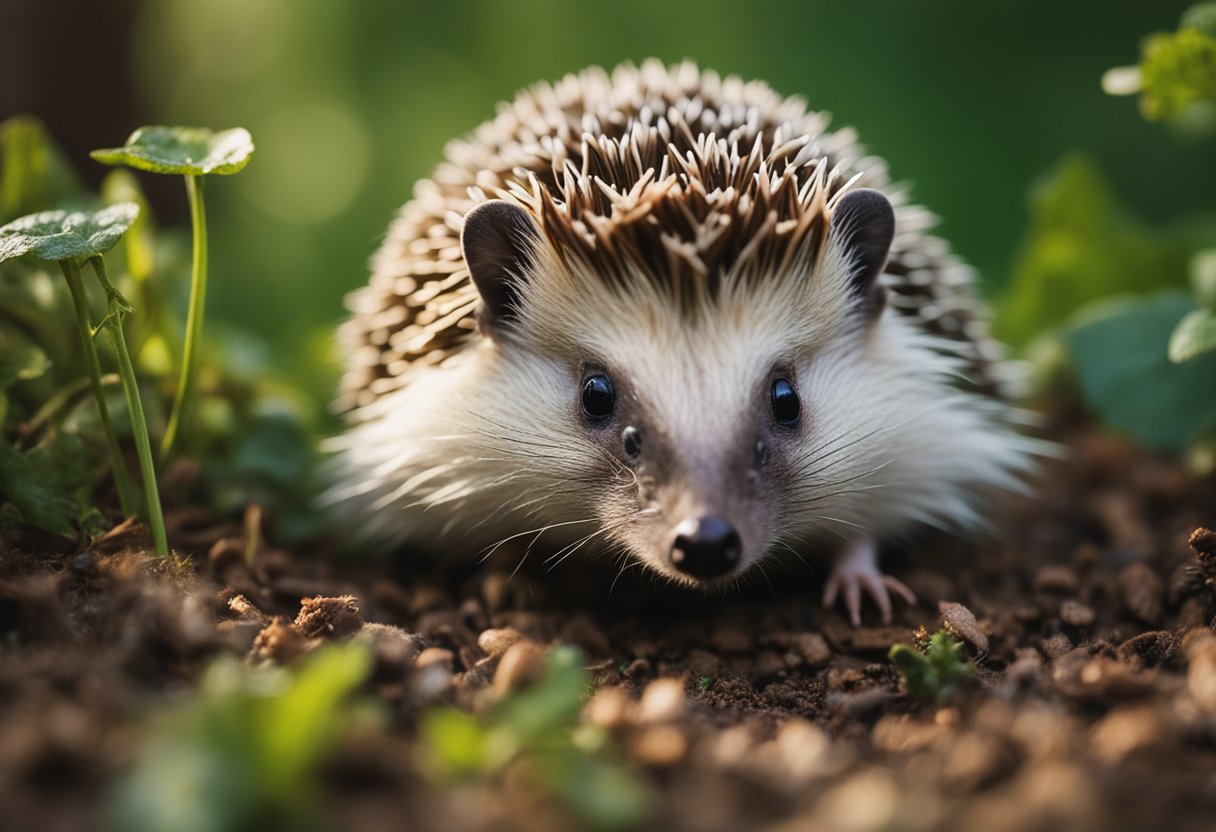
If you’re considering feeding cicadas to your pet hedgehog, it’s important to do your research beforehand. Cicadas can provide nutritional benefits, but they also come with potential risks. Here are some resources to help you make an informed decision:
- Hedgehog Harmony provides a detailed article on whether hedgehogs can eat cicadas. According to the article, hedgehogs can eat cicadas and they are a good source of nutrients. However, it’s important to ensure that the cicadas are free from pesticides and other harmful chemicals. The article also suggests feeding cicadas in moderation and not as a staple food.
- VoyoPets offers an article on the benefits and risks of feeding cicadas to hedgehogs. The article states that while cicadas can provide nutritional benefits, they also come with potential risks such as choking hazards and digestive obstructions. The article recommends avoiding feeding cicadas to hedgehogs unless they are thoroughly cooked and the hard exoskeleton is removed.
- What’s That Bug? provides a friendly guide to cicada predators. The article mentions that cicadas are generally harmless to humans, pets, and plants and are an important food source for many animals, including birds, bats, and wasps. The article also dispels some common misconceptions about cicadas, such as the belief that they are toxic.
When it comes to feeding your hedgehog, it’s important to provide a balanced diet that includes a variety of foods. In addition to insects, hedgehogs can also eat fruits, vegetables, and protein-rich foods such as chicken and eggs. Consult with a veterinarian or an experienced hedgehog owner for more information on feeding your pet.
Conclusion
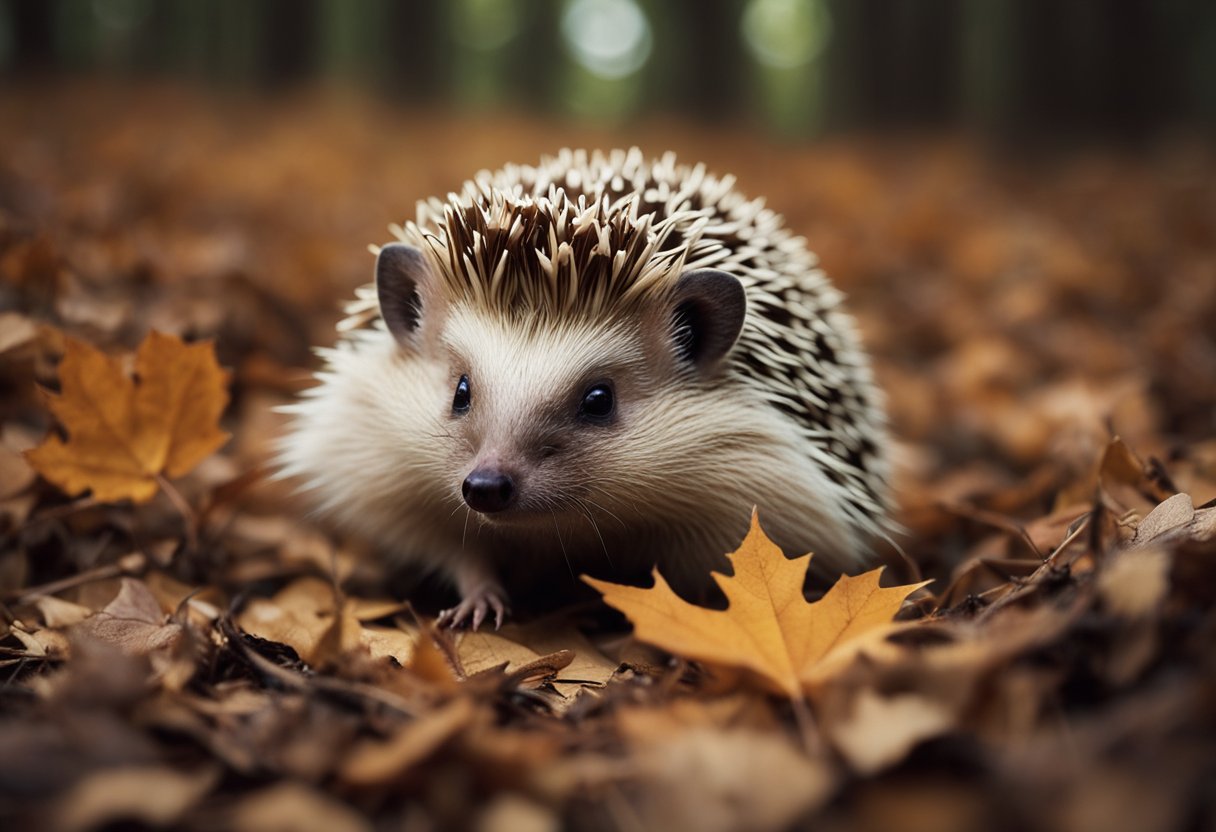
In conclusion, hedgehogs can eat cicadas, but it is important to keep in mind that not all cicadas are safe for them to consume. Some cicadas may be poisonous or venomous, and others may have been exposed to pesticides or other harmful chemicals. It is recommended to only feed your hedgehog cicadas that are specifically raised for human consumption or that you have caught yourself in a safe and pesticide-free environment.
While cicadas can offer nutritional benefits to hedgehogs, such as protein and other nutrients, there are potential risks associated with including them in their diet. One primary concern is the hard exoskeleton of cicadas. Hedgehogs may struggle to chew and digest these tough shells, leading to potential choking hazards or obstructions in their digestive system. It is important to ensure that any cicadas fed to your hedgehog are properly prepared and free of any potential hazards.
Overall, while hedgehogs can eat cicadas, it is important to do so in moderation and with caution. As with any new food introduced to your hedgehog’s diet, it is recommended to monitor their behavior and health closely to ensure that they are tolerating it well. If you have any concerns or questions about feeding cicadas to your hedgehog, it is best to consult with a veterinarian or other animal care professional.
Frequently Asked Questions
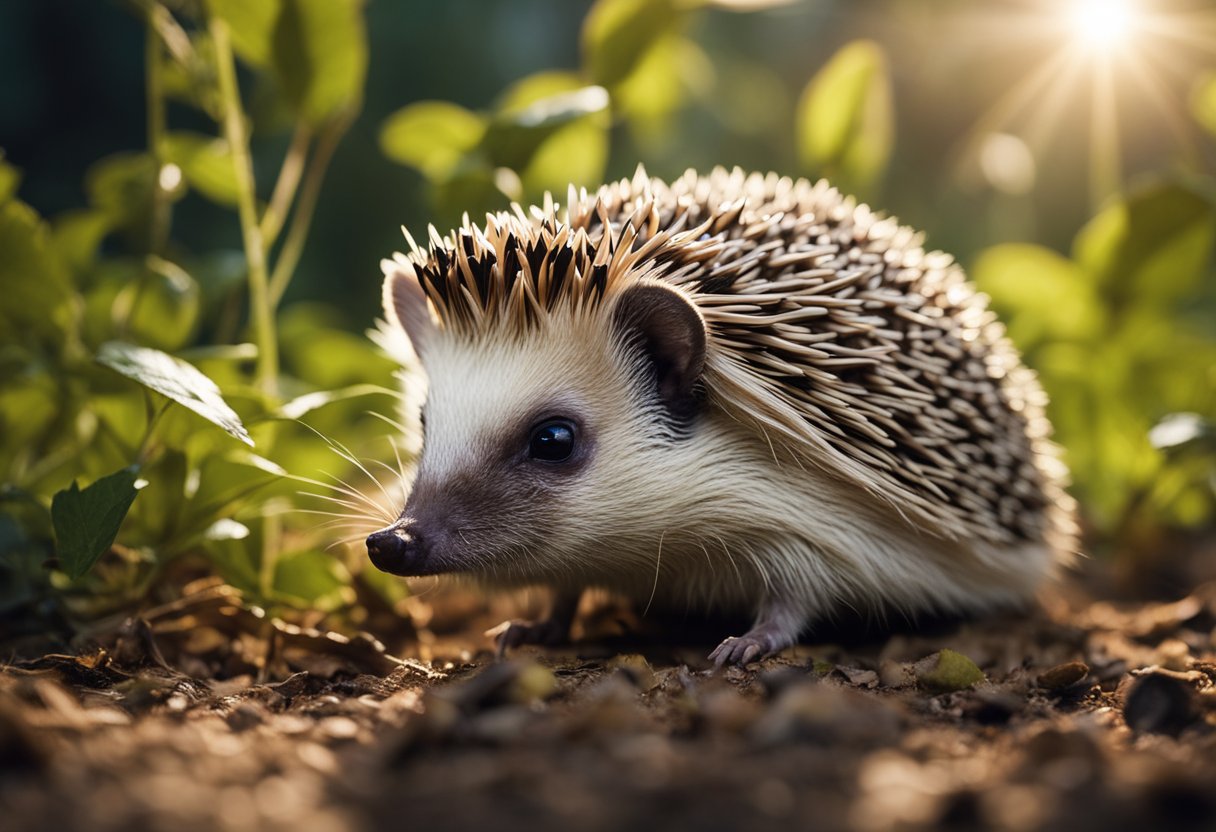
What types of insects are included in a hedgehog’s diet?
Hedgehogs are insectivores and their diet mainly consists of insects, such as mealworms, crickets, and waxworms. They also eat small amounts of fruits and vegetables. However, it is important to note that not all insects are safe for hedgehogs to consume.
Are cicadas harmful to hedgehogs if ingested?
While cicadas can offer nutritional benefits to hedgehogs, there are potential risks associated with including them in their diet. One primary concern is the hard exoskeleton of cicadas. Hedgehogs may struggle to chew and digest these tough shells, leading to potential choking hazards or obstructions in their digestive system. Therefore, it is important to feed hedgehogs fresh cicadas and avoid picking dead cicadas from outside.
What should I consider before feeding insects to my hedgehog?
Before feeding insects to your hedgehog, it is important to consider the size and texture of the insect. Insects that are too large or have hard exoskeletons may pose a choking hazard or cause obstructions in the hedgehog’s digestive system. It is also important to ensure that the insects are fresh and free from pesticides or other harmful chemicals.
Can consuming cicadas affect a hedgehog’s health?
Consuming cicadas can provide hedgehogs with additional protein and other nutrients. However, if the cicadas are not fresh or are contaminated with harmful chemicals, they can cause health problems for the hedgehog. Additionally, the hard exoskeletons of cicadas can pose a choking hazard or cause obstructions in the hedgehog’s digestive system.
What is the nutritional value of cicadas for hedgehogs?
Cicadas are a good source of protein and other nutrients for hedgehogs. They are also low in fat and calories, making them a healthy addition to a hedgehog’s diet. However, it is important to feed hedgehogs fresh cicadas and avoid picking dead cicadas from outside.
How often can hedgehogs safely eat insects like cicadas?
Hedgehogs can safely eat insects like cicadas as part of a balanced diet. However, it is important to feed them in moderation and ensure that they are fresh and free from harmful chemicals. It is also important to vary their diet and include other sources of protein and nutrients, such as mealworms and crickets.
